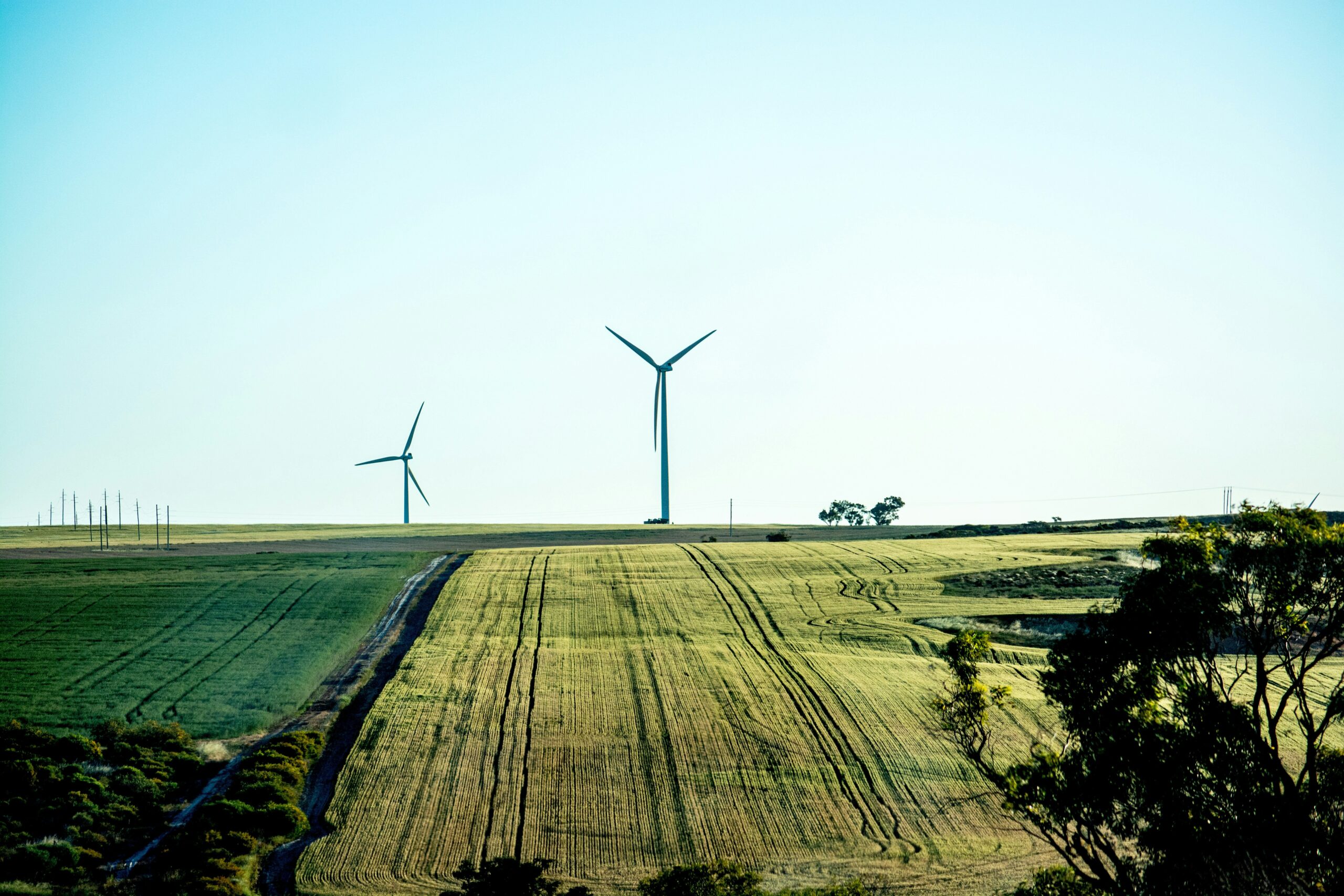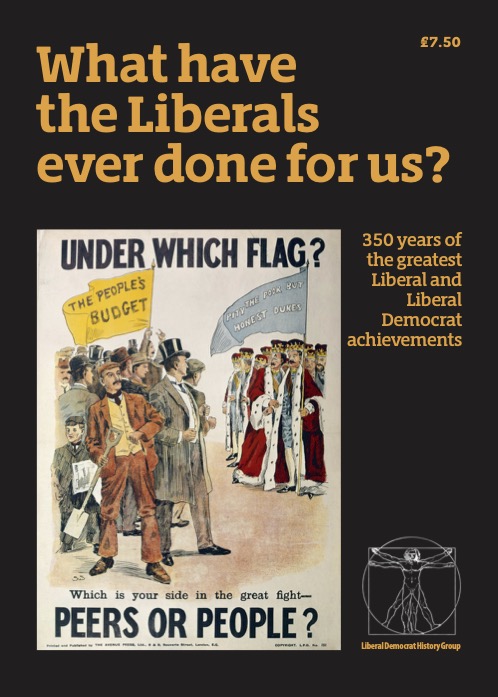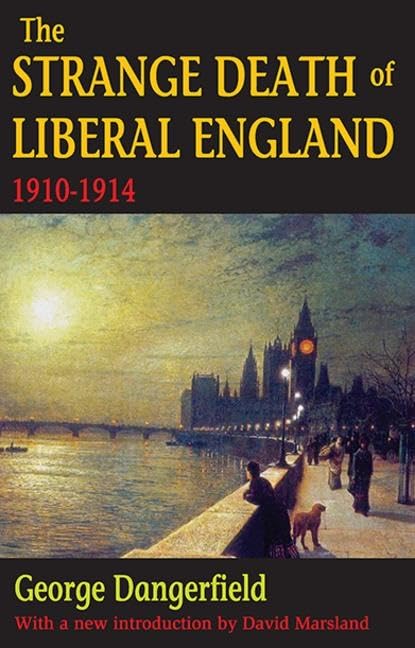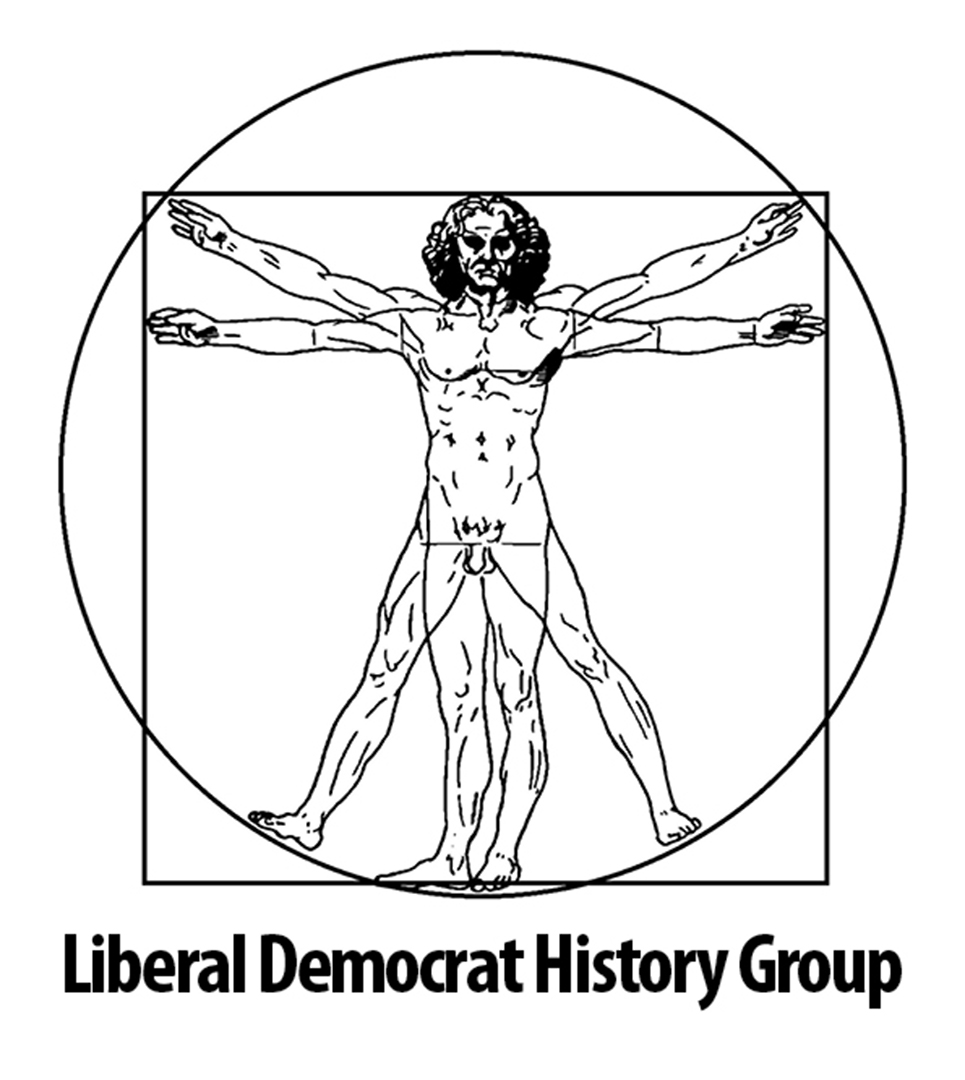
Journal of Liberal History
For the discussion and research of Liberal, Liberal Democrat and SDP history
Events

The history of Liberal and Liberal Democrat environmental thinking
—
by
How and when did environmental policy become important to British political parties, and to the Liberal Party, SDP and Liberal Democrats in particular?

Greening Liberalism
—
by
The history of Liberal and Liberal Democrat environmental thinking How and when did environmental policy become important to British political parties, and to the Liberal Party, SDP and Liberal Democrats in particular? Speakers: Professor Neil Carter (York University) and Baroness Parminter. Chair: Keith Melton (Green Liberal Democrats). This is a fringe meeting at the Liberal…

The 1847 Financial Crisis and the Irish Famine
—
by
The Irish famine of the 1840s remains the worst humanitarian crisis in the United Kingdom’s history. Within six years of the arrival of the potato blight in Ireland in 1845, more than a quarter of its people had died or emigrated. Despite this, Lord John Russell’s Whig government decided in spring 1847 – long before…

The 1847 Financial Crisis and the Irish Famine
—
by
The Irish famine of the 1840s remains the worst humanitarian crisis in the United Kingdom’s history. Within six years of the arrival of the potato blight in Ireland in 1845, more than a quarter of its people had died or emigrated. YUp

What Have the Liberals Ever Done For Us? Book Launch
—
by
Launch of the Liberal Democrat History Group’s new concise guide to the greatest Liberal achievements, from the seventeenth to the twenty-first centuries. Speakers: Layla Moran MP, Sarah Olney MP, Wendy Chamberlain MP, Baroness Barker. Chair: Lord Wallace of Saltaire.

The Strange Death of Liberal England Revisited
—
by
George Dangerfield’s The Strange Death of Liberal England, published in 1935, became one of the most influential accounts of the Liberal Party’s demise as a party of government. Dangerfield claimed that by ‘the end of 1913 Liberal England was reduced to ashes’ by three forms of political turbulence and upheaval: the threat of civil…
Shirley Williams: Liberal Lion and Trailblazer
—
by
Shirley Williams, part of the ‘Gang of Four’ who founded the SDP and former leader of the Liberal Democrats in the House of Lords, was one of the UK’s best-loved politicians. She championed numerous progressive causes and for decades was an inspiration to millions of liberals. Mark Peel (author, Shirley Williams: The Biography), Lord Tom…
Forgotten Liberal Heroes: Sir Edward Grey and Richard Haldane
—
by
The Liberal governments of Henry Campbell-Bannerman and H.H. Asquith included many ‘big beasts’. Sir Edward Grey served as Foreign Secretary and remains the longest-serving holder of the office. He maintained good relations with France and Russia at a time of great instability in Europe. When his efforts to avert conflict failed, in 1914, Grey persuaded…
Was the Coalition a mistake? Why did we fail to stop Brexit?
—
by
Launch of Partnership & Politics in a Divided Decade, by husband-and-wife team Vince Cable and Rachel Smith. This new book tells the inside story of Vince Cable’s political career during the turbulent decade of the 2010s. The book covers Vince’s time as Secretary of State for Business, Innovation and Skills in the Liberal Democrat –…
The fall of the Lloyd George coalition
—
by
2022 marks the centenary of the departure from office of the last Liberal to hold the post of Prime Minister; on 19 October 1922 David Lloyd George resigned after six years as premier. His fall followed the decision of Conservative MPs, meeting in the Carlton Club earlier that day, to end the post-war coalition. Discuss…
Working with Labour: The Liberal Party and the Balance of Power 1923-31
—
by
The 1920s were a challenging decade for the Liberal Party. With the advance of Labour, the Liberals were now the third force in British politics. The Asquith and Lloyd George factions united to contest the 1923 general election as one party, but tensions remained. The election resulted in a hung parliament, with the Liberals holding…
The 1992 General Election
—
by
The general election of 1992 was the first contested by the Liberal Democrats, who had been formed from the merger of the Liberal Party and the SDP just four years before. The new party entered the contest buoyed by parliamentary by-election victories, impressive local election results in 1991, and the high popularity of their leader,…
The two Davids: Steel versus Owen
—
by
In 1981 the alliance between the Liberal Party and the newly founded SDP was agreed; the two parties would fight elections together on a joint platform with join candidates. Between 1983 and 1987, however, the working relationship between the Liberal leader, David Steel, and his SDP counterpart, Dr David Owen, became increasingly marked by tension…
Liberalism in the United States
—
by
What is political liberalism in the United States? The original concept was the protection of people from arbitrary power, support for the free market and advocacy of religious tolerance. But that started to change in the early twentieth century, when American liberals joined with progressives in advocating government intervention in the economy and social…
Back from the dead: the Liberal Party in the 1950s
—
by
In 1951, the Liberal Party’s existence was in grave doubt. At the October general election, the party contested a mere 109 seats, and only six MPs were returned. The party was badly divided over basic questions of strategy, and membership and morale were low. The late 1950s saw an upturn in the Liberals’ fortunes. In…
Asquith versus Lloyd George
—
by
On 7 December 1916, H.H. Asquith was replaced as Prime Minister by David Lloyd George. The change followed mounting disquiet over the conduct of the First World War, and Lloyd George’s demands that a small committee, not including Asquith, should direct the war effort. Lloyd George forced the issue by resigning from the coalition government.…
Liberals with a radical programme: The post-war welfare state, Beveridge and the Liberal Party 75 years on
—
by
2020 marks the seventy-fifth anniversary of the 1945 general election and the beginning of the creation of the post-war welfare state. While the system of social security introduced after 1945 is often heralded as one of the greatest achievements of the Labour Party, its intellectual origins and design were primarily owed to Liberal thinkers and…
General Election 2019: Disappointment for the Liberal Democrats
—
by
The Liberal Democrats entered the 2019 general election campaign buoyed by their best opinion poll ratings in a decade, a second place showing in the recent European Parliament elections, impressive local election results in England and high-profile defections from the other parties. The party had a dynamic, young new leader in Jo Swinson and a…
The 1979 General Election
—
by
The 1979 general election inaugurated the premiership of Margaret Thatcher and an eighteen-year period of Conservative government. It took place after the ‘winter of discontent’, marked by public sector strikes which destroyed the Labour government’s social contract. The results signalled the end of the post-World War II political consensus, based on an enhanced role for…
